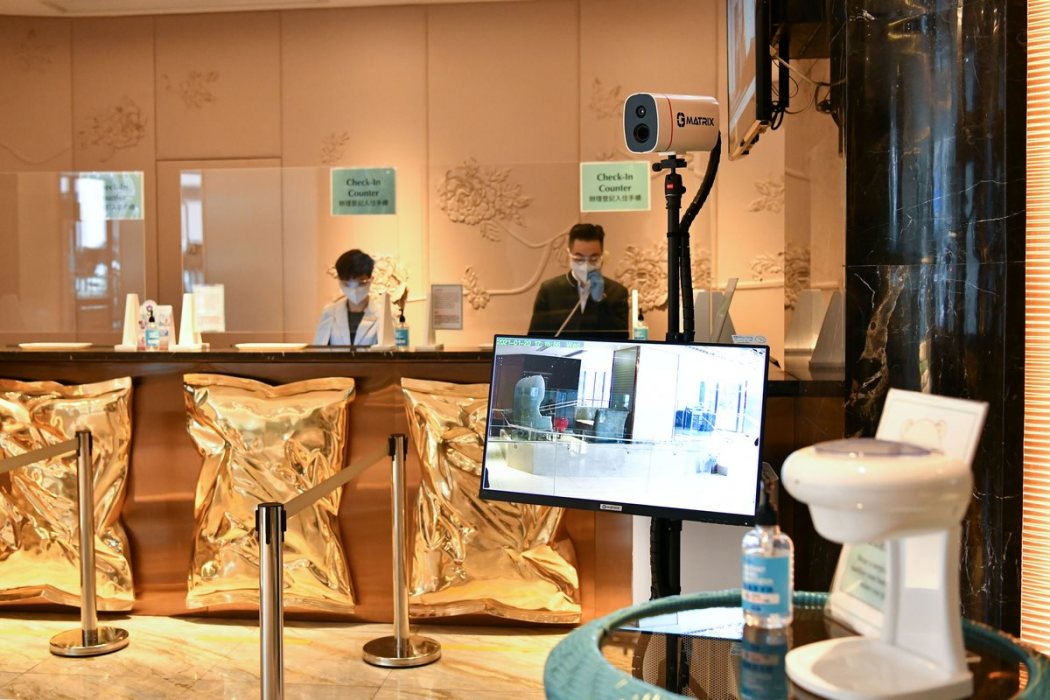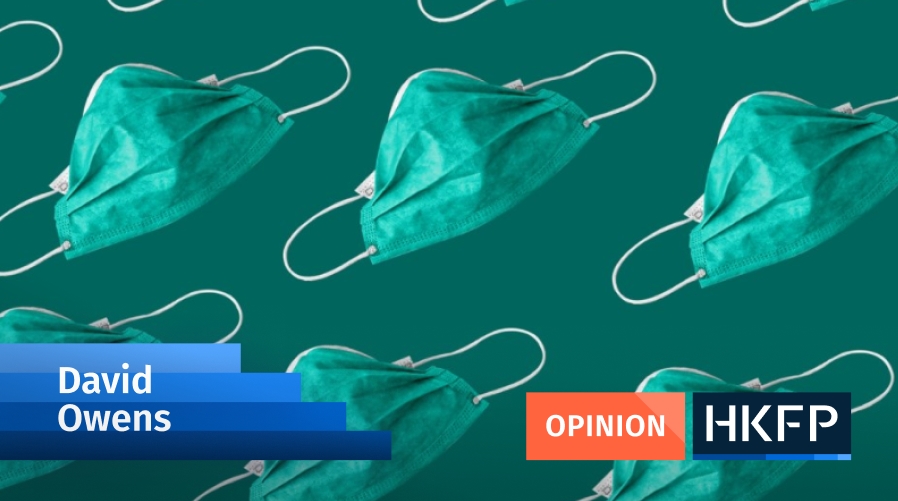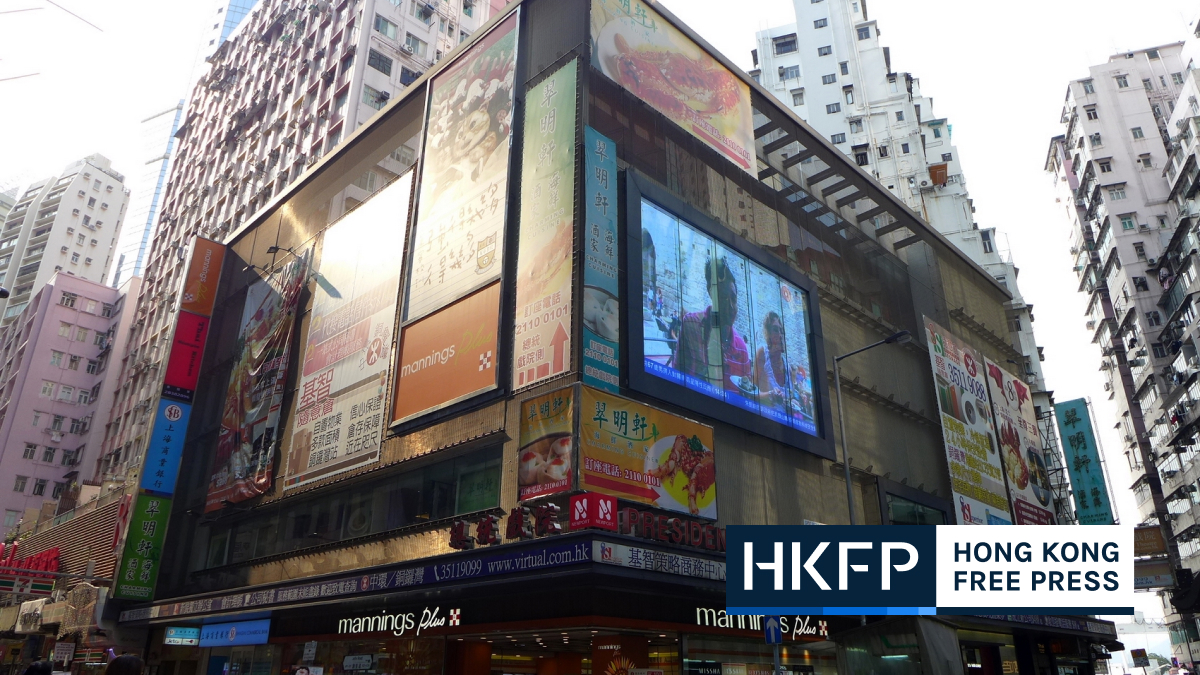Only three of all imported Covid-19 cases in Hong Kong this summer were detected after the first week of quarantine and two of them were staying in the same hotel at overlapping times, raising further questions about the effectiveness of the city’s draconian policy.
Among 188 imported Covid-19 cases detected from about 267,000 people arriving in Hong Kong between June 1 and August 31, 54 per cent (101) tested positive on arrival, 95 per cent (178) by the third day of quarantine and 98 percent (185) by the end of the first week, an examination of data from the Department of Health has shown.

One additional case was picked up in the second week of quarantine, on Day 12. Two remaining cases, or one per cent, were detected in the third week of quarantine, both on Day 19.
Centre for Health Protection controller Edwin Tsui told a press briefing on Tuesday that one per cent of imported Covid-19 cases were detected in the third week of quarantine. He did not provide breakdowns or the timeframe for his data set.
Health officials insist a 21-day rule for travellers from countries deemed high-risk, including Britain, India and the United States, is necessary despite the rarity of infections during the third week of quarantine.
Benjamin Cowling, University of Hong Kong epidemiologist, said latent periods – the time from getting infected to becoming infectious – longer than 10 days are highly unlikely.
“Anything after day 10, I would say, is more likely to be re-positive or within hotel [transmission], rather than a long latent period,” he said. “If there is transmission in the quarantine hotel, even 21 days won’t be enough.”

A re-positive case is a patient who was previously infected and fully recovered, but continues to shed the virus for weeks to months after the initial infection. Patients are not infectious as their viral loads are very low.
Of the two Day 19 cases detected between June and August, one was an unvaccinated and asymptomatic passenger arriving from the United Kingdom with a very low viral load that was insufficient for mutation testing. He was discharged from hospital within four days of his positive test report. Covid-19 patients are generally required to stay at least 10 days in hospital.
The other Day 19 case was an asymptomatic passenger from Indonesia who stayed in the same quarantine hotel as five other Covid-19 cases with overlapping stays, including the Day 12 case who also arrived from Indonesia, on a different flight and day. Both cases spent 10 days in the hospital.
The Department of Health has said there was no evidence that the Day 19 and Day 12 cases acquired their infections from the quarantine hotel. It has not responded to a query as to whether or not whole genome sequencing was performed in these two cases and the four other cases with overlapping stays, which would be necessary to accurately trace the source of infection and rule out transmission within the hotel.

“If two cases are related, they usually have a fully identical genome in the first generation of transmission. No mutation gap difference,” said Gilman Siu, Hong Kong Polytechnic University associate professor whose research lab performs whole genome sequencing.
Whole genome sequencing, which can be performed by several labs in Hong Kong, is not carried out for every Covid-19 case. It is used mainly for local cases from the community to allow investigators to trace their source, identify transmission clusters and connect unlinked cases. Imported cases are sequenced to a lesser extent, mainly to keep track of which strains are coming from which countries.
The three reported cases of travellers acquiring infections during their quarantine stays in April and August this year were uncovered only after they had completed quarantine and tested positive in the community.
It is unclear whether a formal workflow exists to investigate hotel transmission if an individual tests positive 12, 16 or 19 days into quarantine. The possibility of within-hotel transmission may never be explored and may go overlooked.

“The longer you stay in the quarantine hotel, the risk of getting infected will be high,” said Siu, who fears that such a hotel could be the source of another outbreak.
“A quarantine hotel is not a hospital,” he said. “One mistake, a single mistake, and the virus may escape into the community.”
Hotel staff do not undergo rigorous training in infection control, unlike medical personnel. Also, the ventilation system in hotels was not designed to prevent the transmission of airborne pathogens and has been implicated in previous cases of hotel transmission.
For this reason mainland China is building dedicated quarantine facilities to replace hotels for inbound travellers, including a 5,000-room facility recently completed in Guangzhou.
The Delta variant rose and outcompeted other strains of SARS-CoV-2 this summer, comprising 50 per cent of cases in mid-June and then well over 90 per cent of cases by mid- July. In response the Hong Kong government imposed 21-day quarantines on travellers from 25 high-risk countries in mid-August, one of the world’s toughest.
Chief executive Carrie Lam has said Hong Kong’s priority is to open the border with the mainland, not with the rest of the world.
“We have to ensure that our anti- Covid-19 practices are more in line with the mainland practices,” she said at a recent press briefing, “so that the mainland authorities will have the level of confidence to enable Hong Kong people to go into the mainland.”

A 21-day quarantine functions “to show mainland China that we are being super-cautious because the priority for quite some time now…has been to reopen the border to China in a completely free and unobstructed way,” said Nicholas Thomas, associate professor of Asian and International Studies at City University of Hong Kong.
“I think that’s going to largely stay in place up until the time when China starts to decide it wants to reopen,” he said. “I don’t think Hong Kong is going to strike out on its own in any way, manner, shape or form, that it is suddenly going to reduce those standards.”
A recent study of the transmission dynamics of Delta, carried out by Cowling and other researchers at the University of Hong Kong with the China Centers for Disease Control and Prevention, found that the average latent period of the Delta variant was four days and that 95 per cent of Delta cases started shedding virus within 8.2 days.
Based on his research, Cowling would recommend a shorter quarantine similar to many parts of mainland China: 14 days of quarantine in a designated facility, followed by seven days of self-monitoring with continued testing.
“We understand the justification of public health measures for the greater good. You quarantine people for the greater good even though it’s a harm for that person,” said Cowling. “Twenty-one days strikes me as something that’s gone beyond what is justified in terms of the greater good.”
Support HKFP | Policies & Ethics | Error/typo? | Contact Us | Newsletter | Transparency & Annual Report | Apps
Help safeguard press freedom & keep HKFP free for all readers by supporting our team
















